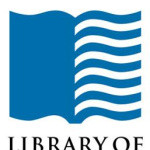- Settore: Culture; Government
- Number of terms: 1108
- Number of blossaries: 0
- Company Profile:
The Library of Congress is the U.S. oldest federal cultural institution and serves as the research arm of Congress. It is also the largest library in the world, with millions of books, recordings, photographs, maps and manuscripts in its collections.
A Chinese idiom referring to the system of guaranteed lifetime employment in state enterprises, in which the tenure and level of wages are not related to job performance.
Industry:History
Replaced production brigades from 1982 to 1985 as the lowest-level semiofficial government entity. They provide bureaucratic coordination, and welfare payments and settle disputes. Party branches are usually organized at the village level.
Industry:History
As used by communists, term refers to political, economic, and social tendencies that stray to the right of orthodox Marxism- Leninism. The Chinese communists long insisted that these tendencies were counterrevolutionary and that internal and external enemies (such as the Soviet Union) were infected by this negative phenomenon.
Industry:History
Term for party policy aimed at broadening and cultivating contacts with the masses of the people and to accentuate the leadership role of the Chinese Communist Party.
Industry:History
Term in general use in China for the urban administrative unit usually found immediately below the district level, although an intermediate, subdistrict level exists in some cities. Also called streets (administrative terminology varies from city to city). Neighborhoods encompass 2,000 to 10,000 families. Within neighborhoods, families are grouped into smaller residential units of 100 to 600 families and supervised by a residents' committee; these are subdivided into residents' small groups of fifteen to forty families.
Industry:History
Socialism; dictatorship of the proletariat; supporting the party leadership; and Marxism-Leninism-Mao Zedong Thought. In vogue in China since 1979.
Industry:History
Соціалізм; Диктатура Пролетаріату; підтримка керівництва партії; і Marxism Leninism Mao Zedong думки. В моді в Китаї з 1979 року.
Industry:History
Як використовувати з комуністами, термін відноситься до політичних, економічних і соціальних тенденцій, що бродячих праворуч від православних марксизм - ленінізм. Китайські комуністи довгий наполягала на тому, що ці тенденції були контрреволюційних, що внутрішні і зовнішні ворогів (наприклад, Радянський Союз) були інфіковані цим негативним явищем.
Industry:History
Малих прибережних районах створено починаючи з 1979 року на сприяння економічному розвитку і впровадження передових технологій через залучення іноземних інвестицій. Спеціальних пільгових умовах та зручності пропонується за межами інвесторів в оподаткуванні, землекористування зборів і в'їзду та виїзду керування спільні підприємства, спільні підприємства та підприємств із єдиною іноземних інвестицій. Спеціальні економічні зони мають більшу владу прийняття рішень в економічних завдань, ніж Провінційний рівні одиниці. Регулювання ринку є первинним.
Industry:History
China's monetary unit, which in mid-1987 had an exchange rate of US$1 to -Y3. 72, or -Y1 to US$. 269. The yuan is divided into 100 fen, and 10 fen constitute 1 jiao. The currency is known as renminbi (RMB), meaning the people's currency. The inscription renminbi (or renminbiao) appears on bank notes as well as yuan, and the terms renminbi and yuan are used synonymously in quoting exchange rates. In transactions the terms are universally replaced by the word kuai (piece). Beginning in the early 1980s, the standard currency was paralleled by a special currency called Foreign Exchange Certificates, which were issued in exchange for "hard" foreign currencies.
Industry:History
